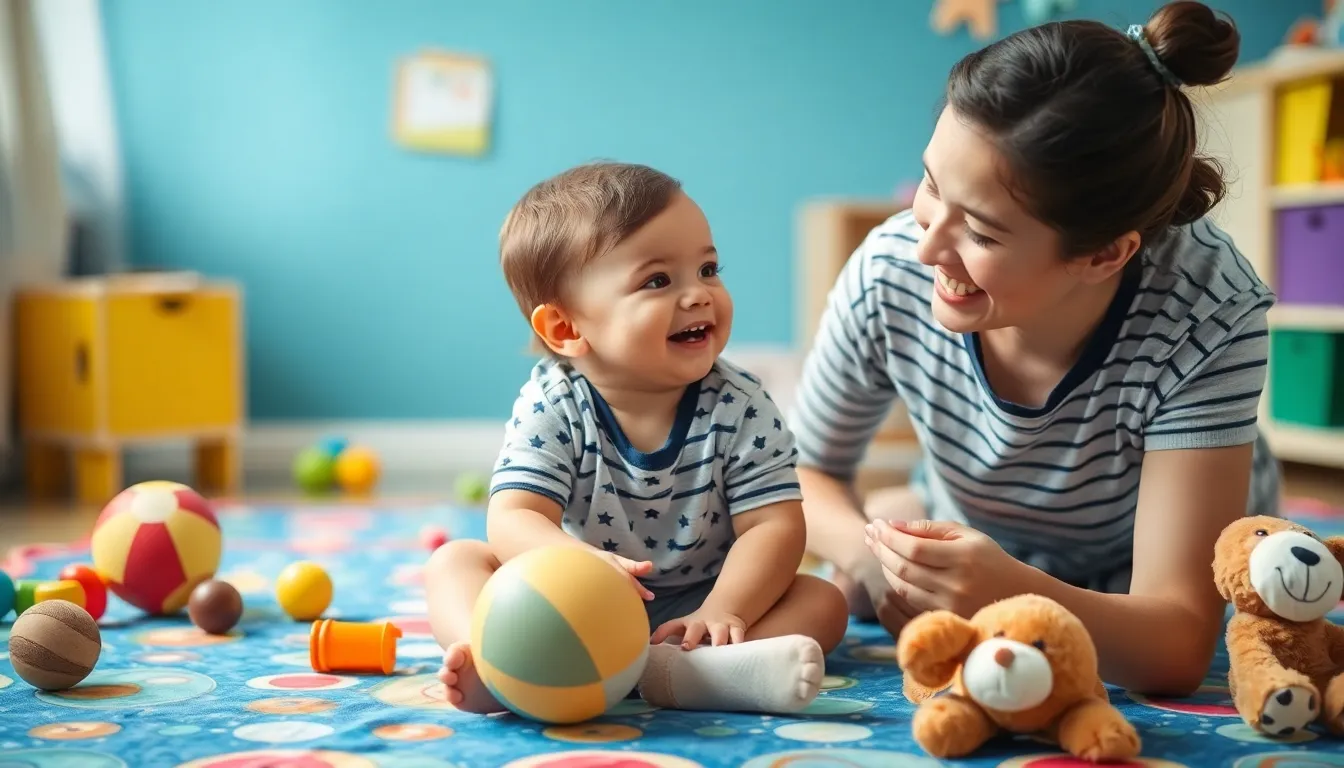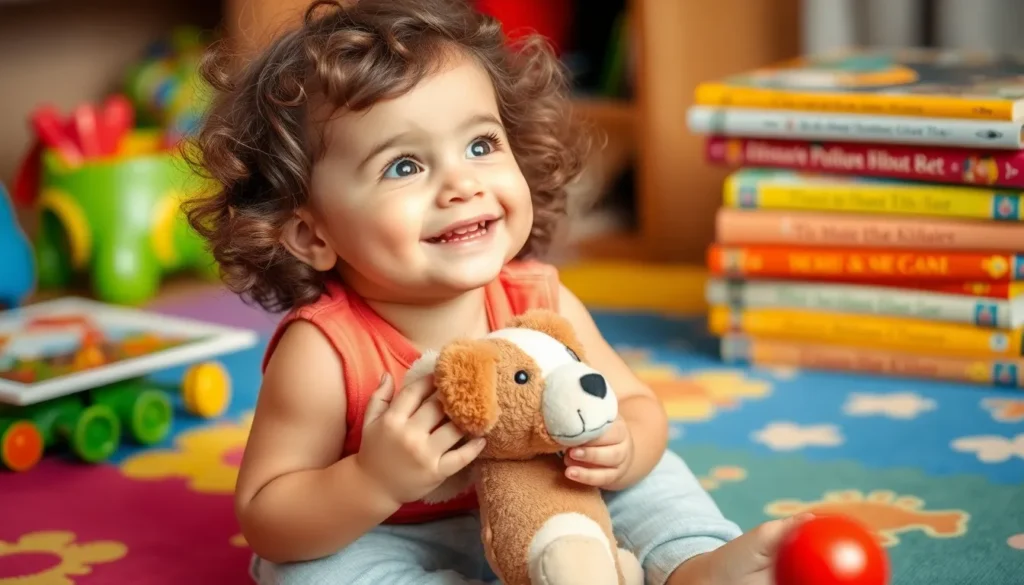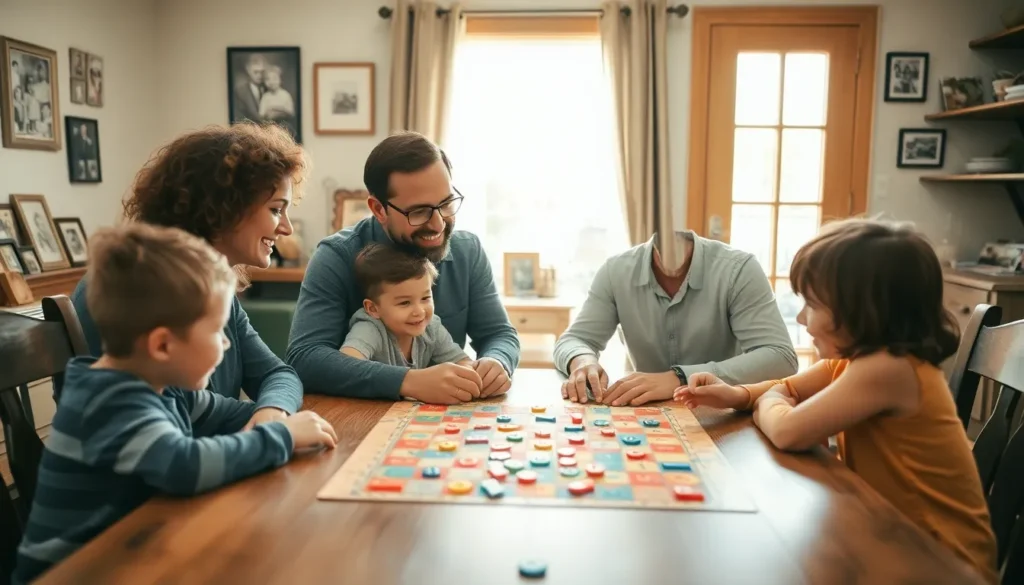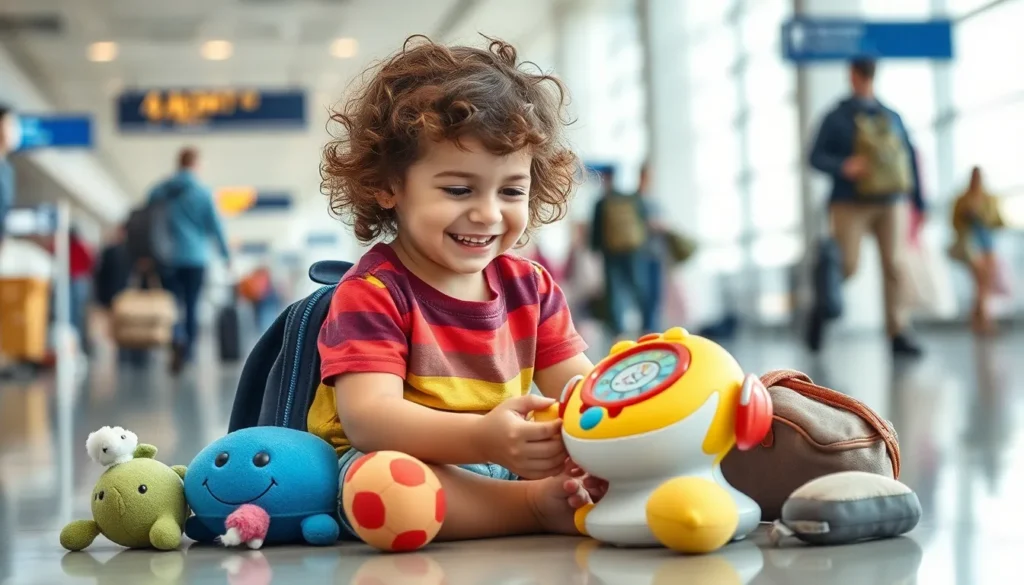Table of Contents
ToggleWatching a toddler learn to talk is like witnessing a mini stand-up comedy show. One minute they’re babbling nonsense, and the next, they’re stringing together sentences that leave parents both amused and bewildered. Language milestones in toddlers are not just cute moments; they’re crucial indicators of a child’s development. Each word they master is a tiny victory in their journey toward effective communication.
As toddlers navigate their early years, they hit exciting milestones that shape their language skills. From their first words to forming simple sentences, these achievements set the stage for future learning. Understanding these milestones can help parents and caregivers support their little ones in building a strong foundation for language. So buckle up for a delightful ride through the world of toddler talk, where every giggle and mispronunciation is a step toward becoming a confident communicator.
Understanding Language Development
Language development in toddlers plays a crucial role in effective communication. Each milestone achieved contributes significantly to their overall growth.
Importance of Language Milestones
Language milestones serve as foundational markers in a child’s communication journey. Tracking these milestones offers insights into developmental progress, allowing parents to identify areas where additional support might be needed. Milestones such as saying first words or combining words into simple phrases indicate important cognitive and social skills. Recognizing these indicators helps parents celebrate achievements and encourages positive reinforcement, fostering further language growth.
Stages of Language Acquisition
Language acquisition unfolds in distinct stages, each characterized by unique developments. The first stage, cooing, typically occurs around 2 to 3 months, where infants produce vowel-like sounds. By 6 to 12 months, babbling starts, combining consonants and vowels. First words generally emerge between 10 to 14 months, often consisting of familiar objects or people. As toddlers progress, they form two-word phrases around 18 to 24 months, marking the transition to more complex language use. Continued expansion of vocabulary and sentence structure takes place from 2 to 3 years, reflecting their growing understanding of the world.
Key Language Milestones for Toddlers

Understanding key language milestones helps track a toddler’s communication development. Notable benchmarks mark significant progress in their ability to use language.
First Words: When and What to Expect
First words usually appear between 10 and 14 months. Common first words include “mama,” “dada,” and simple objects like “ball” or “dog.” Expressing needs through these early words showcases emerging communication skills. Expect variations; some children speak earlier, while others take additional time.
Encouragement plays a vital role in this stage. Responding to a toddler’s attempts at speech fosters confidence and nurtures further language exploration. Parents can support this milestone by frequently talking with their child, using clear and simple language.
Vocabulary Growth: Tracking Progress
Vocabulary expansion occurs significantly between 18 and 24 months. Toddlers typically learn around 50 words by age two, including everyday objects, actions, and descriptors. Developing a diverse vocabulary lays the groundwork for effective communication.
Tracking vocabulary growth can guide parents in identifying strengths and areas needing support. Engaging a child in conversations enhances word retention and usage. Reading books daily offers additional exposure to new words, fueling continuous vocabulary development. Regularly assessing language progress helps ensure toddlers are on the right path toward effective communication.
Factors Influencing Language Development
Language development relies on several critical factors. These include the environment in which toddlers grow and the nature of their interactions with caregivers.
Environment and Interaction
Engaging environments significantly boost language skills. Children benefit from rich linguistic exposure, which includes conversations and storytelling. For instance, hearing diverse vocabulary during daily routines enhances comprehension and usage. Frequent interactions with parents encourage toddlers to express thoughts and emotions. Encouragement leads to increased confidence in communication. The presence of books and reading materials within the home also plays a pivotal role in fostering a love for language.
Individual Differences in Development
Individual differences shape each toddler’s language journey. Some children may reach milestones earlier than others, influenced by factors such as temperament and innate abilities. Genetic components contribute to variations in language skills among peers. Experiences like attending preschool can accelerate language acquisition through structured social interactions. Additionally, cultural practices and parenting styles also affect development timelines. Each child thrives in unique ways, and understanding these differences helps caregivers offer tailored support.
Encouraging Language Skills in Toddlers
Supporting language skills in toddlers requires intentional activities and engagement. Effective strategies bolster vocabulary and communication abilities, paving the way for future learning.
Activities to Promote Language Growth
Interactive play promotes language development. Simple games like Simon Says encourage toddlers to follow directions and use new words. Singing familiar songs exposes children to rhythm and vocabulary. Additionally, naming objects during everyday activities reinforces language concepts. Engaging in discussions about daily experiences cultivates conversational skills. Encourage toddlers to express thoughts and feelings, enhancing their ability to articulate ideas. Playing with puppets or dolls inspires imaginative storytelling, furthering language competence.
The Role of Reading
Reading regularly lays a strong foundation for language skills. Books with colorful images and simple texts capture toddlers’ attention. Ask questions about the story to stimulate critical thinking and expand vocabulary. Repetition of favorite books reinforces familiar words and phrases, aiding retention. Alongside verbal storytelling, using expressive voices and gestures makes reading interactive. Exploring various genres fosters a broader understanding of language structures and themes. Incorporating reading into daily routines creates a cozy and enjoyable language-rich atmosphere.
The journey of language development in toddlers is both exciting and crucial. Each milestone achieved marks a step toward effective communication and cognitive growth. By understanding these stages and actively engaging with toddlers, parents and caregivers can create an enriching environment that fosters language skills.
Encouraging interactions through conversation and storytelling not only enhances vocabulary but also builds confidence in young learners. As they navigate this fascinating process, supporting their efforts can make a lasting impact on their ability to communicate effectively in the future. Embracing this adventure allows everyone involved to appreciate the joy and wonder of language acquisition.







